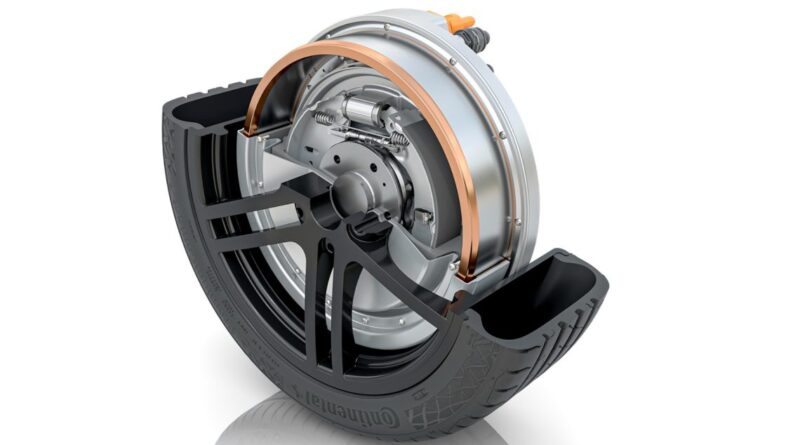This BMW in-wheel motor will change everything in EVs: a new era in the automotive industry
BMW and Continental announced a new strategic partnership to develop an in-wheel motor, including an integrated brake. The strategic partner is electric drive Munich-based start-up DeepDrive, renowned for creating the first radial flux twin rotor motor with power electronics that can be used in production vehicles.
DeepDrive is an expert in creating energy-efficient electric motors and has produced large-scale automobiles for many years. Matthias Matic, president of Continental’s Safety and Motion business area, said they have gained a great partner as electric motors created by DeepDrive help to improve the range of EVs. Additionally, they are lighter, more inexpensive, and more resource-efficient.
With the help of existing investors UVC Partners and Bayern Kapital with its Bavarian Growth Fund, DeepDrive raised a total of €15 million in its Series A financing round. The company’s stated goals with the additional funding are to begin industrial production of the engines and to expand its workforce.
Furthermore, DeepDrive says it already works with eight of the ten top automakers and plans to introduce its technology to the market in large-scale production by 2026. The firm says its objective is to continue meeting the growing market demand.
The disruptive in-wheel motor that will change the EV industry
The collaboration between DeepDrive, BMW, and Continental will be centered on creating a scalable and reasonably priced manufacturing method for the new motor. The new in-wheel hub motor is built on DeepDrive’s patented dual-rotor radial-flux technology and is anticipated to be more efficient than conventional electric motors.
An in-wheel motor prototype from DeepDrive was first displayed at the 2021 IAA. According to the company, its proprietary architecture allows for better torque and power density than competing drive technologies, which should enable vehicles to achieve a 20% increase in range or a 20% reduction in battery size.
Some of the most important features of the new in-wheel hub compared to electric vehicle motors are:
More efficient
The dual-rotor radial-flux design may allow electric vehicles fitted with the novel motor to travel farther, adding 20% more efficiency compared to conventional electric motors.
Smaller and lighter
The new motor is lighter and smaller, which may facilitate integration into electric vehicles and improve handling.
Ease to scale
Due to its scalable architecture, the new motor can be utilized in a range of electric vehicles, including big SUVs and compact city automobiles.
Initial progress toward the in-wheel motor project
BMW, Continental, and DeepDrive aim to start testing the new in-wheel hub motor in prototypes no later than 2024. By 2025, they look forward to starting mass-producing this cutting-edge technology. Lastly, forecasts say that the new in-wheel hub motor may be used in the manufacturing of electric vehicles no later than 2026.
Since the electrification of vehicles will eventually allow for the direct placement of all chassis functions, including the drive, both firms see significant potential in their partnership. Succeeding in the development of this in-wheel motor project will transform the automotive sector and open the door to a more sustainable future.
They also plan to develop a unit that consists of drive and brake components that can be mounted directly on the wheel of the vehicle to best implement the various requirements of electric vehicles. Requirements such as maximizing range while minimizing installation space and simultaneous modularity.
In conclusion, the new in-wheel hub motor from BMW, Continental, and DeepDrive is an exciting new technology that has the potential to be a significant player in the future of the electric vehicle industry. Its high efficiency, small size, and scalability make it a viable choice for a range of applications, and if it proves to be successful, it may contribute to the decreasing cost and increasing popularity of electric vehicles.
Source : lagradaonline.com




